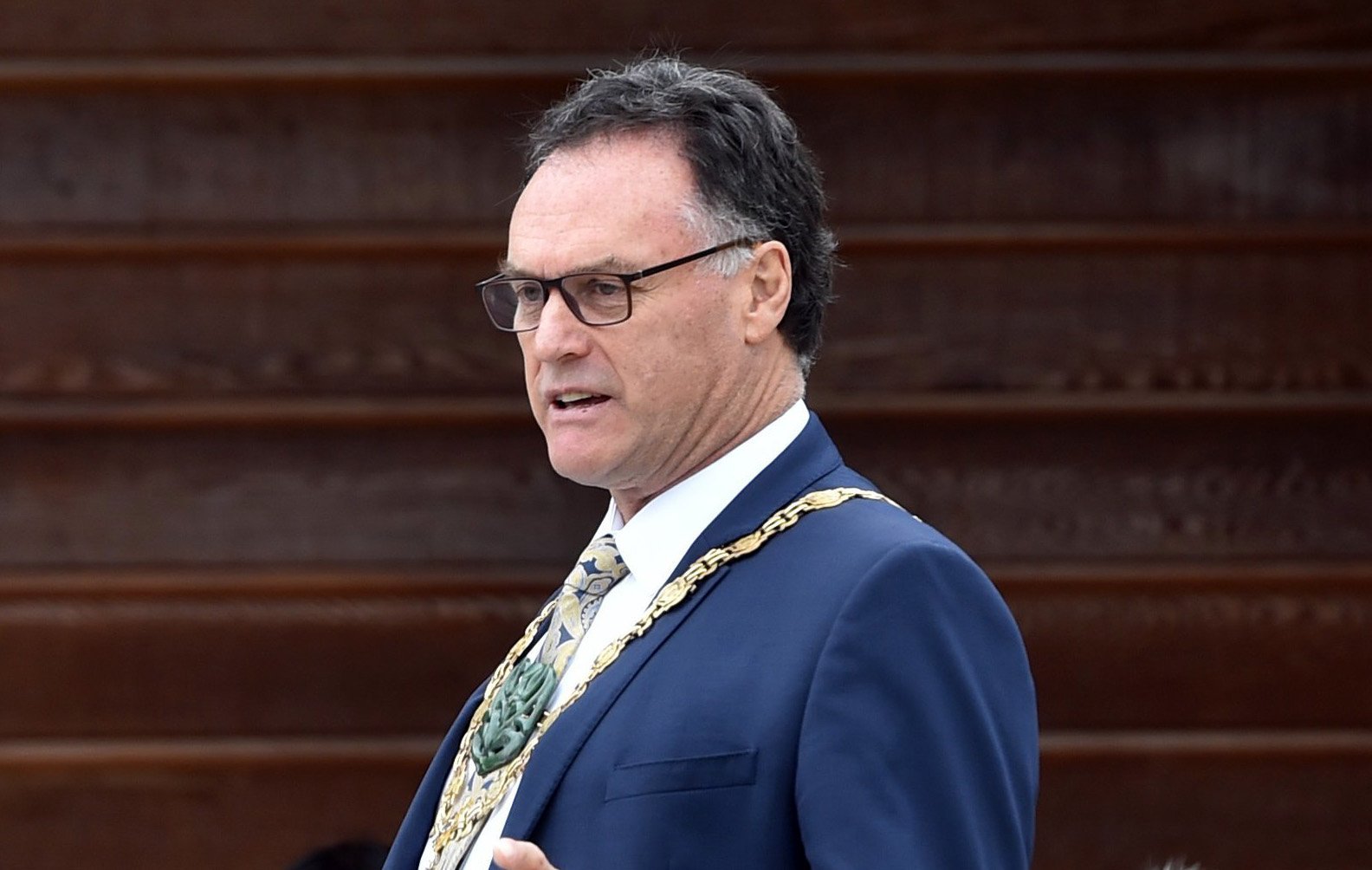
Dunedin Mayor Jules Radich brought both himself and the city council into "disrepute" by breaching meeting confidentiality and undermining his organisation’s position about a racism incident, an investigator says.
The mayor’s comments in a Radio New Zealand interview on August 30 ultimately led to the victim of racial abuse by a community board chairman being identified, investigator Jordan Boyle said.
The Dunedin City Council had discussed the censure of the board chairman in private expressly to prevent this from happening, Mr Boyle said.
"It is important for people who engage in processes like this to have confidence their information will be kept confidential, particularly when they could face negative consequences if this confidence is breached."
The city council accepted the findings, that Mr Radich had materially breached the code of conduct, during a meeting behind closed doors on Tuesday.
Mr Radich had previously apologised.
He declined to comment yesterday.
There was no clamour for his resignation among councillors last night.
The council had in August issued a censure against Strath Taieri Community Board chairman Barry Williams after he verbally abused and racially insulted a woman in May.
The council asked Mr Williams to consider resigning as board chairman.
Mr Radich was interviewed about the council’s censure, but described the incident as "a relatively minor thing".
He also disclosed it had happened in a pub.
Mr Boyle, a partner in Dyhrberg Drayton Employment Law, said Mr Radich was responsible for the meaning that could be reasonably interpreted from his comments.
"He stated the incident was minor, Mr Williams didn’t remember it, and it wasn’t reported by anyone who witnessed it.
"Collectively, these statements all minimised Mr Williams’ actions."
Mr Radich’s commentary led to a complaint filed by deputy mayor at the time Sophie Barker and Cr Jim O’Malley.
Cr Barker said the mayor’s comment about the incident being minor was insulting, upsetting and contrary to the council’s position.
"In Cr Barker’s view, while some people may have already known details of the incident involving Mr Williams, she disputed the idea it was common knowledge," Mr Boyle said.
Cr O’Malley said the council had a strategy for how it was going to respond to media and Mr Radich then went against this.
"Cr O’Malley wanted casual racism to be taken seriously and for the public to see it was being taken seriously," Mr Boyle said.
Cr O’Malley observed the mayor had a "habit" of making statements undermining the council and then needing to make corrections or issue apologies.
The complaint was procedural and it was not about garnering Mr Radich’s resignation.
Mr Radich told the investigator he had sought to convey to the listening audience Mr Williams’ actions had not happened during a board meeting.
"Mayor Radich saw the incident as common knowledge in Middlemarch and therefore it couldn’t be considered confidential information," Mr Boyle said.
Mr Radich signed the letter of censure of Mr Williams and then spoke to him on the phone.
He had wanted to "discuss the incident in the spirit of positivity, given people didn’t like being told off".
In the week before the radio interview, Mr Radich had spoken to a survivor of the Christchurch mosque shootings.
"His use of the word ‘minor’ was in reference to other serious incidents, not to say Mr Williams’ racist comments were minor."
His intention was to get Mr Williams to look at the situation differently and change his behaviour.
Nonetheless, Mr Boyle observed Mr Radich was required to act in a way that upheld the reputation of the council.
His comments had affected the council’s reputation, Mr Boyle said.
He acknowledged Mr Radich’s apology to councillors and a mayoral statement issued after the RNZ interview.
"In my view, the mayoral statement did not sufficiently address the impact of the initial statement — nor is it likely any apology or statement could have done this," Mr Boyle said.











